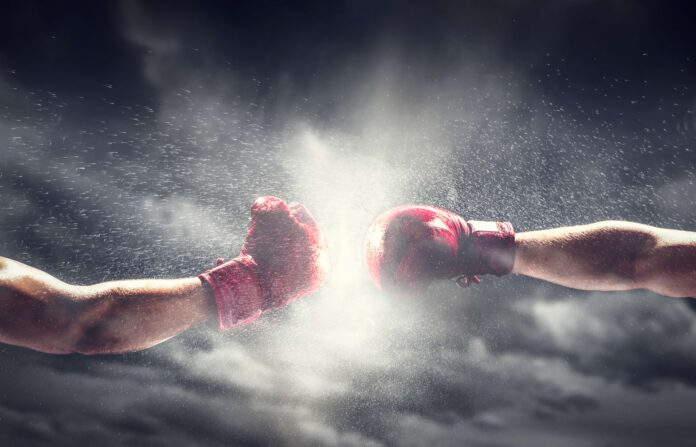Imane Khelif is a professional boxer from Algeria. You have likely heard a lot about her lately.
When she was a young girl, her father didn’t much like her deep interest in sports, saying in a BBC Sport interview that “he did not approve of boxing for girls.” Khelif, however, persisted. She’d commute by bus for training, selling scrap metal and bread to afford the trip.
In 2017, she made it to her first championships, finishing 17th in the women’s lightweight event at the 2018 AIBA Women’s World Boxing Championships. By 2020, she was an Olympic level athlete, being the first female boxer to represent Algeria.
Then, in 2023, at the International Boxing Association’s Women’s World Boxing Championships, controversy struck. Khelif found herself disqualified shortly after defeating Russian boxer Azalia Amineva. With the disqualification, Amineva’s undefeated streak was allowed to continue.
I suppose I should mention that the IBA is deeply tied to Russia, so much so that the International Olympic Committee (IOC) revoked their recognition of the IBA.
The IBA claimed that Khelif had failed eligibility tests for the competition, but did not fully specify what those tests were, though some had speculated it may have been due to her testosterone levels being too high to compete, and others claiming she has XY chromosomes. To date, the IBA has kept their tests, and the results, shrouded in secrecy.
Khelif again represented Algeria in the 2024 Olympic Summer Games. The IOC, via the Associated Press, felt that the IBA testing was, “so flawed that it’s impossible to engage with it,” and had determined that Khelif “was born female, was registered female, lived her life as a female, boxed as a female, [and] has a female passport.”
Then came her second-round against Angela Carini of Italy.
The fight lasted all of 46 seconds, with Carini taking two punches before she, in tears, withdrew from the event. Carini also refused to shake Khelif ‘s hand after the bout.
Online, questions immediately sprung up about Khelif’s gender.
Author turned virulent transphobe J.K. Rowling was quick to chime in, showing a photo of Khelif trying to comfort Carini after the fight, claiming that Khelif was displaying, “the smirk of a male who’s knows he’s [sic] protected by a misogynist sporting establishment enjoying the distress of a woman he’s [sic] just punched in the head, and whose life’s ambition he’s [sic] just shattered.
Likewise, Elon Musk, well on the road to be better known for his own brand of online toxicity versus his businesses, shared a tweet from Riley Gaines showing a photo of Carini, and saying, “Men don’t belong in women’s sports #IStandWithAngelaCarini.”
Gaines, I should note, tied for fifth place in 2022 with trans swimmer Lia Thomas. Gaines has since built a following as a fighter against trans inclusion in sports.
Khelif did, I should note, go on to win gold at the Games. Her legal representatives have also announced plans to go after those who attacked her on social media and elsewhere, including Musk and Rowling.
Trans people, in particular trans women, have long been a cause célèbre for the ongoing culture wars against transgender people. We could go all the way back to 1976, when Renée Richards went to court against the U.S. open to compete as a woman.
We have seen the issue of trans inclusion in any number of sports, from powerlifting to darts. It has been used to keep trans kids barred from sports in schools, even opening up all children to have to prove their birth gender with paperwork and even physical examination of their genitalia.
This is a fight that is nowhere near over, particularly with the right using it to gin up support for their candidates in yet another election this autumn.
It seems that most often in these sorts of controversies, those ensnared are not themselves transgender. Consider Caster Semenya, a South African middle-distance runner and former Olympian. Semenya is intersexed, though has certainly been used as a target of anti-trans forces for more than a decade.
Indeed, questions of gender with sports stars date back at least as far as the 1936 Olympic Games in then-Nazi controlled Germany. Those games were the first to allow the sex of any female competitor to be challenged. It was there that Stanisława Walasiewicz was forced to undergo a genital inspection after winning a silver medal in the 100m dash.
There were no transgender women competing at the 2024 Summer Games. Indeed, the first trans woman to ever compete was at the 2020 Summer Games, Laurel Hubbard. She did not reprise in 2024.
Yet Khelif and Taiwanese boxer Lin Yu-ting — who was also disqualified by the IBA in 2023 alongside Khelif, and also won a gold medal at the 2024 Summer Games — were both subject to attacks as if they were transgender women.
It is as if the anti-transgender bigots, deprived of an actual transgender target, will simply find themselves having to make one up in order to fuel their own bigotry.
I find myself, however, left pondering what the result may have been if Khelif had actually been transgender. Would so many have jumped in to defend her against the Rowlings and Musks? Would they have been able to go on to win gold at the games, or would they have been stripped of the right to complete?
I find myself without a comfortable answer to this, other than to assume that we still have a very long way to go before we’ll see trans equality at the Olympics.
Gwen Smith won a silver medal at the company retreat. You’ll find her at www.gwensmith.com.
